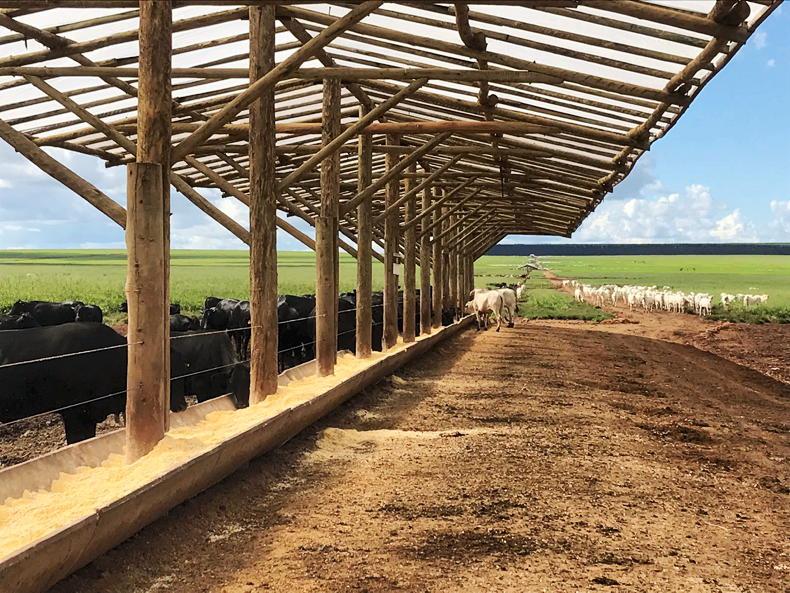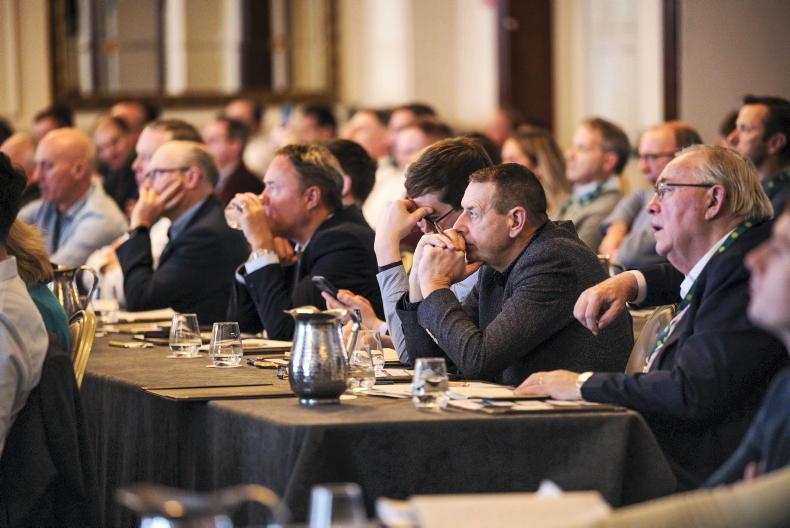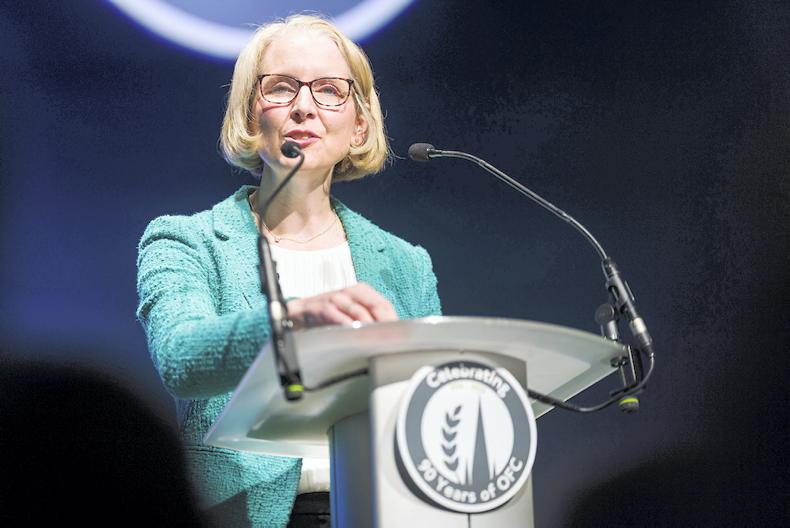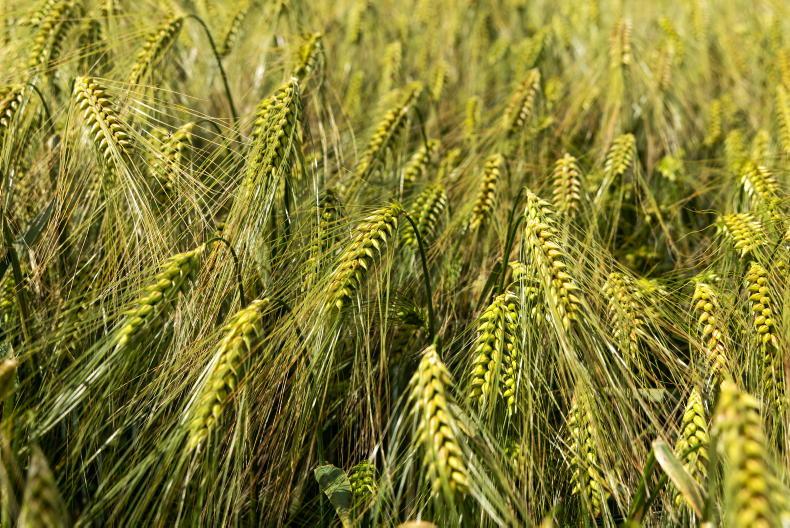Addressing the Oxford Farming Conference were guest speakers Chandrashekhar Bhadsavle from India, CEO of Falcon Coffee from South Africa Konrad Brits and Daniel McGahey of Earth Systems from the UK.
This international panel of speakers gave an overview of the issue of equity in the current global food system.
Indian farmer Chandrashekhar Bhadsavle, known as 'the godfather of agro tourism in India' for his work to combat food shortages and global warming, primarily focused on regenerative farming methods.
He shared his ideas on his past implementations of agro-tourism. Iniatives included guided farm tours for members of the public which provide insight to the everyday work of an Indian farmer.
He also spoke about the Saguna rice technique; a conservation method using no tillage resulting in less physical labour for farmers and preventing soil infertility, while producing higher yields in all soil types.
Dangers of erosion
He spoke of the dangers relating to erosion and the over-exposure of soil such as infertility, low yields and water loss, as well as people’s “greed to produce plenty”.
Chandrashekhar acknowledged the importance of regenerative methods of farming on a global scale. “The issues are the same wherever you are in the world,” he explained.
He believes these regenerative farming methods and educating the public about the farmer’s role in society can be used worldwide to increase sustainability
The solution lies in agro tourism, which will add a new dimension to farming
Chandrashekhar explained that farming is a challenging job and it is difficult for workers to maintain interest and enthusiasm in India in particular.
However, he believes the solution lies in agro tourism, which will add a new dimension to farming. He also stressed that farmers need to get value out of the goods they produce.
Sustainable coffee farming
CEO of Falcon Coffee Konrad Brits spoke about sustainable, fair farming in relation to coffee in Africa. The issue of paying “a fiver for a cup of coffee” was discussed.
While it appears that farmers and traders often don’t see a fraction of the price, his coffee chain’s mission is “to facilitate the relationship between coffee producers and coffee roasters”.
Konrad wants to connect rural farming communities with the urban market that sells the coffee.
Konrad says that people need to be conscious of sustainability and equality for the primary producers
He mentioned that millennials are definitely more conscious than other generations of where their coffee is coming from.
We should also be aware of how many times products change hands “on the journey from farm to table”.
While the end goal is still profit and sales, Konrad says that people need to be conscious of sustainability and equality for the primary producers, while also working to maintain traceability to protect public health if a risk arises.
Food security and farming sovereignty were pressing issues throughout the seminar.
Konrad reminded audience members of the severe economic challenges farmers have to bear worldwide, especially during COVID-19.
“The pandemic has been interesting. What has it revealed about sustainability in coffee? We need retailers to protect farmers. We need to change our culture,” he said.
Focus on dry products
Senior environmental and social scientist at Earth Systems Daniel McGahey focused on Africa and how demand for dry land products, such as sesame, raisins and gums, is becoming increasingly popular in the northern hemisphere because of their nutritional benefits.
As 43% of Africa is covered by drylands, farmers are developing “opportunistic” strategies to regenerate soil that are “uniquely adapted” to African land, as well as focusing more on a mechanical approach.
Agro-forestry techniques are being implemented as Africa continues to urbanise rapidly.
Daniel assured audience members that “it’s not all doom and gloom”, as demand for processed foods is increasing in Africa as the country develops.
Regenerative methods are becoming increasingly popular worldwide, with all three guest speakers agreeing that farmers should be paid by their governments for implementing these methods.
This incentive might encourage other countries to undertake these strategies. “The movement has begun,” said Chandrashekhar.
Read more
Different EU agrochemical treatment is not a sustainability action
Addressing the Oxford Farming Conference were guest speakers Chandrashekhar Bhadsavle from India, CEO of Falcon Coffee from South Africa Konrad Brits and Daniel McGahey of Earth Systems from the UK.
This international panel of speakers gave an overview of the issue of equity in the current global food system.
Indian farmer Chandrashekhar Bhadsavle, known as 'the godfather of agro tourism in India' for his work to combat food shortages and global warming, primarily focused on regenerative farming methods.
He shared his ideas on his past implementations of agro-tourism. Iniatives included guided farm tours for members of the public which provide insight to the everyday work of an Indian farmer.
He also spoke about the Saguna rice technique; a conservation method using no tillage resulting in less physical labour for farmers and preventing soil infertility, while producing higher yields in all soil types.
Dangers of erosion
He spoke of the dangers relating to erosion and the over-exposure of soil such as infertility, low yields and water loss, as well as people’s “greed to produce plenty”.
Chandrashekhar acknowledged the importance of regenerative methods of farming on a global scale. “The issues are the same wherever you are in the world,” he explained.
He believes these regenerative farming methods and educating the public about the farmer’s role in society can be used worldwide to increase sustainability
The solution lies in agro tourism, which will add a new dimension to farming
Chandrashekhar explained that farming is a challenging job and it is difficult for workers to maintain interest and enthusiasm in India in particular.
However, he believes the solution lies in agro tourism, which will add a new dimension to farming. He also stressed that farmers need to get value out of the goods they produce.
Sustainable coffee farming
CEO of Falcon Coffee Konrad Brits spoke about sustainable, fair farming in relation to coffee in Africa. The issue of paying “a fiver for a cup of coffee” was discussed.
While it appears that farmers and traders often don’t see a fraction of the price, his coffee chain’s mission is “to facilitate the relationship between coffee producers and coffee roasters”.
Konrad wants to connect rural farming communities with the urban market that sells the coffee.
Konrad says that people need to be conscious of sustainability and equality for the primary producers
He mentioned that millennials are definitely more conscious than other generations of where their coffee is coming from.
We should also be aware of how many times products change hands “on the journey from farm to table”.
While the end goal is still profit and sales, Konrad says that people need to be conscious of sustainability and equality for the primary producers, while also working to maintain traceability to protect public health if a risk arises.
Food security and farming sovereignty were pressing issues throughout the seminar.
Konrad reminded audience members of the severe economic challenges farmers have to bear worldwide, especially during COVID-19.
“The pandemic has been interesting. What has it revealed about sustainability in coffee? We need retailers to protect farmers. We need to change our culture,” he said.
Focus on dry products
Senior environmental and social scientist at Earth Systems Daniel McGahey focused on Africa and how demand for dry land products, such as sesame, raisins and gums, is becoming increasingly popular in the northern hemisphere because of their nutritional benefits.
As 43% of Africa is covered by drylands, farmers are developing “opportunistic” strategies to regenerate soil that are “uniquely adapted” to African land, as well as focusing more on a mechanical approach.
Agro-forestry techniques are being implemented as Africa continues to urbanise rapidly.
Daniel assured audience members that “it’s not all doom and gloom”, as demand for processed foods is increasing in Africa as the country develops.
Regenerative methods are becoming increasingly popular worldwide, with all three guest speakers agreeing that farmers should be paid by their governments for implementing these methods.
This incentive might encourage other countries to undertake these strategies. “The movement has begun,” said Chandrashekhar.
Read more
Different EU agrochemical treatment is not a sustainability action










SHARING OPTIONS